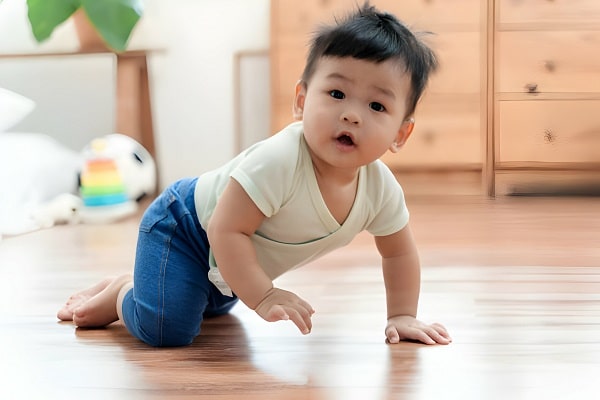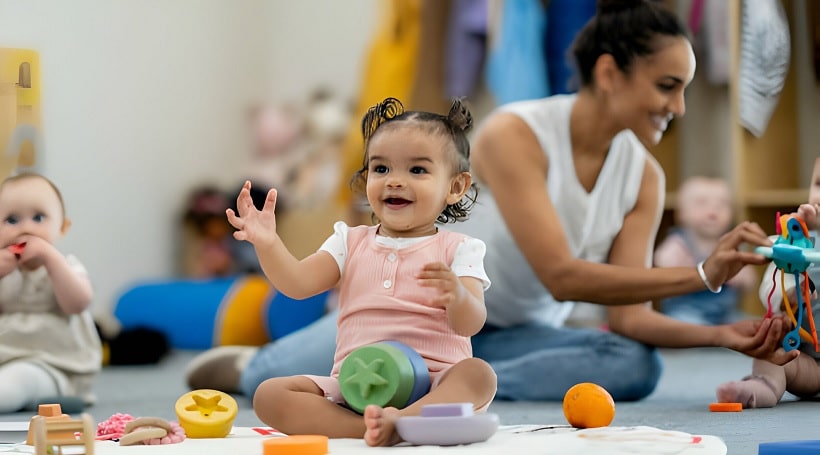Last Updated on January 1, 2025
The desire for a baby often stems from a deep-seated human instinct for reproduction and the continuation of one’s lineage. Additionally, societal norms, personal fulfillment, emotional connections, and the joy of nurturing a new life contribute to this longing. It’s a complex mix of biological, psychological, and social factors.
The yearning to have a baby is a profoundly personal and often intense desire that many individuals experience at various points in their lives. This longing can be attributed to a multitude of factors, ranging from biological instincts and personal fulfillment to societal pressures and cultural expectations. Understanding why this desire is so powerful involves exploring the intricate interplay of emotional, psychological, and physiological influences that drive the human need for procreation and nurturing.

Read More – The Ultimate Guide to Choosing Bathroom Upgrades That Pay Off
Why Do I Want A Baby So Bad?
Biological Instincts and the Drive for Continuity
At the core of the desire to have a baby is the biological instinct for reproduction. This primal urge is hardwired into the DNA of almost every living organism, with the primary aim of ensuring the survival of the species. Humans are no exception. The instinct to procreate and pass on genetic material to the next generation is a fundamental aspect of human nature. This biological drive is often accompanied by hormonal influences that can intensify the longing for a child, particularly in women. Hormones such as estrogen and progesterone play significant roles in nurturing maternal instincts, preparing the body for pregnancy, and even influencing the psychological desire to have a child.
Emotional Fulfillment and the Joy of Nurturing
Beyond the biological imperative, the desire to have a baby is deeply intertwined with emotional fulfillment. Many people view parenthood as a pivotal life experience that brings unparalleled joy, love, and meaning to their existence. The prospect of nurturing a new life, witnessing the milestones of growth and development, and experiencing unconditional love are powerful motivators for wanting a child. Moreover, the emotional bond that forms between parents and their child is often described as one of the most intense and rewarding relationships one can have.
Societal and Cultural Influences
Societal and cultural norms also play a significant role in shaping the desire for parenthood. In many cultures, having children is seen as a natural and expected step in life. The societal emphasis on family values, the continuity of lineage, and the role of parents as caretakers and providers for the next generation can create a strong external pressure to have children. Furthermore, social media and cultural narratives often romanticize parenthood, highlighting the joys and fulfillment it brings while minimizing the challenges and sacrifices involved. This can further fuel the desire for a baby, especially among individuals who are deeply influenced by societal expectations and the portrayal of parenthood in popular culture.
The Search for Meaning and Legacy
For some, the desire to have a baby is rooted in the search for meaning and the wish to leave a legacy. Bringing a new life into the world and shaping that life through parenting can be seen as a profound way to contribute to the future and leave a lasting impact. The idea of passing on values, traditions, and knowledge to the next generation can provide a sense of purpose and continuity that transcends individual existence. This desire to be part of something greater and to have a tangible representation of one’s life and love in the form of a child can be a powerful motivator.
Read More – How Many Calories Does A Baby Need?
Psychological Factors and the Role of Attachment
Psychological factors also play a crucial role in the longing for a baby. Attachment theory suggests that the need for close and secure relationships is fundamental to human psychological development. The desire to create a family and form strong emotional bonds with a child can be seen as an extension of this need for attachment and belonging. For some individuals, becoming a parent is a way to fulfill unmet needs for love and connection, or to heal from past traumas and create the family dynamics they always wished for.
Coping with the Desire for a Baby
The intense desire for a baby can sometimes lead to emotional distress, especially in situations where achieving parenthood is challenging due to infertility, financial constraints, or other obstacles. It’s important for individuals grappling with this longing to seek support and guidance from healthcare professionals, counselors, and support groups. Exploring alternative paths to parenthood, such as adoption or fostering, can also provide a fulfilling avenue to satisfy the desire to nurture and care for a child.

Read More – How To Teach Your Baby To Drink From A Straw?
FAQs
Why Do I Want A Baby So Bad?
The desire for a baby often stems from biological instincts, emotional fulfillment, and societal influences. It’s a natural longing for the joy and challenge of nurturing a new life, forming deep bonds, and possibly seeking a sense of purpose or legacy through parenthood.
Why do I have the urge to make a baby?
The urge to make a baby is rooted in a combination of biological instincts to reproduce and emotional desires for connection and legacy. Hormonal influences and societal expectations can also amplify this urge, making the idea of creating and nurturing life incredibly appealing.
Why am I craving a baby so bad?
Craving a baby can be attributed to the profound emotional and psychological fulfillment that comes from nurturing and raising a child. This craving may also be influenced by the biological clock, societal pressures, or a personal desire to experience the unique bond between parent and child.
How do I stop wanting a baby so bad?
To mitigate the intense desire for a baby, focus on personal growth, set fulfilling goals, and explore other meaningful relationships or hobbies. Seeking professional counseling can also help manage these feelings, providing support and alternatives for nurturing instincts, like volunteering with children.
Is it normal to feel like you want a baby?
Yes, it’s completely normal to feel like you want a baby. This desire is a natural aspect of human existence, influenced by a mix of biological, emotional, and societal factors. It reflects the deep-seated human instinct to nurture, love, and pass on one’s genes or values.
Conclusion
The longing to have a baby is a complex and deeply personal desire influenced by a multitude of factors. From biological instincts and emotional fulfillment to societal pressures and the search for meaning, the reasons behind this longing are as diverse as the individuals who experience it. Understanding these motivations can provide insight into one’s desires and help navigate the journey toward parenthood with compassion and awareness. Regardless of the path taken, the desire for a baby reflects the profound human capacity for love, nurturing, and connection.

